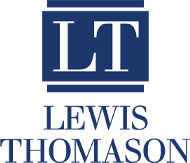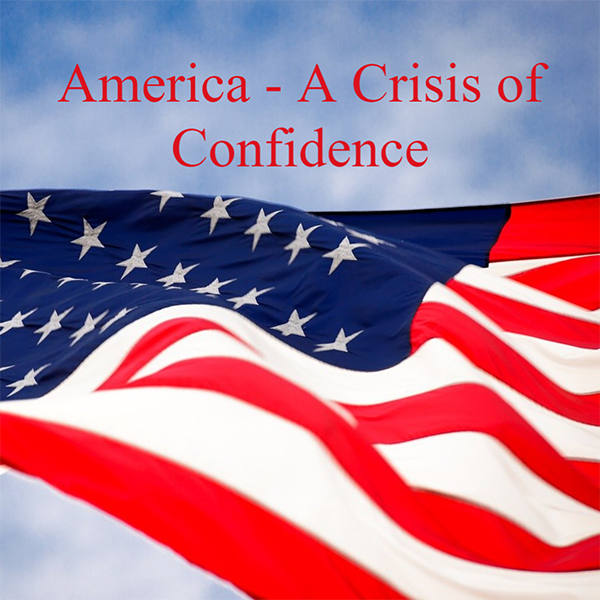This year, good news is scarce. Ads for holiday shopping seem out of place and tone deaf. The election is over but half the country thinks otherwise, leading to dire predictions about the future of our democracy. Meanwhile, thousands of people are dying and even more have been stricken by a deadly virus that will get worse before it gets better. People across the country are experiencing economic insecurity at record levels. Virtual schooling is putting working parents in impossible circumstances. Out of necessity or choice, we are cutting back shopping, dining out, spending money on entertainment not only because these venues are not available but because many are questioning their daily expenditures, not to mention financial future, which compounds economic insecurity for those who work in service industries.
In this environment, we have a soon to be one term president, which reminded me of another one term president, George H. W. Bush. Referring to yet another one term president, President Bush spoke of the “malaise days of the Carter administration,” which brings me to President Jimmy Carter’s famed “malaise speech” that in part lead to his electoral defeat in 1980.
In light of what is going on in 2020, it seems like maybe President Carter was on to something. While that speech, delivered in an oval office address on July 15, 1979, continues to be much maligned in some circles and revered in others, reading the written word without considering the parenthetical (D) or (R) after the name of the person delivering it reveals it to be sadly prescient.
With a background of the nation’s energy crisis and increasing inflation, President Carter spoke to a deeper American crisis. He spoke of dependence on foreign energy, inflation, and unemployment. After admitting a mixed record in achieving his campaign promises, President Carter stated:
So, I want to speak to you first tonight about a subject even more serious than energy or inflation. I want to talk to you right now about a fundamental threat to American democracy.
I do not mean our political and civil liberties. They will endure. And I do not refer to the outward strength of America, a nation that is at peace tonight everywhere in the world, with unmatched economic power and military might.
The threat is nearly invisible in ordinary ways.
It is a crisis of confidence.
It is a crisis that strikes at the very heart and soul and spirit of our national will. We can see this crisis in the growing doubt about the meaning of our own lives and in the loss of a unity of purpose for our nation.
The erosion of our confidence in the future is threatening to destroy the social and the political fabric of America.
This sounds sadly prophetic today. Every day, broadcast news gets more depressing, and that’s the watered-down news intended for the broadest audience. Dig deeper into your preferred source ofthink pieces, punditry, prognostication, or sophistry, depending on your persuasion, and it only gets more depressing, more shrill, more hopeless. If your main source of news is based in social media, then look out.
President Carter continued:
We always believed that we were part of a great movement of humanity itself called democracy, involved in the search for freedom; and that belief has always strengthened us in our purpose. But just as we are losing our confidence in the future, we are also beginning to close the door on our past.
In a nation that was proud of hard work, strong families, close-knit communities, and our faith in God, too many of us now tend to worship self-indulgence and consumption. Human identity is no longer defined by what one does, but by what one owns. But we’ve discovered that owning things and consuming things does not satisfy our longing for meaning. We’ve learned that piling up material goods cannot fill the emptiness of lives which have no confidence or purpose.
After noting certain American values of hard work, family, community, faith, President Carter hit on something. We’ve lost our way as a people, allowing materialism to supplant what used to be core beliefs. Notably, he’s not blaming anyone but ourselves, that collectively we share fault in reaching this point.
He goes on:
As you know, there is a growing disrespect for government and for churches and for schools, the news media, and other institutions. This is not a message of happiness or reassurance, but it is the truth and it is a warning.
These changes did not happen overnight. They’ve come upon us gradually over the last generation, years that were filled with shocks and tragedy.
Here President Carter did something that people then and now probably didn’t want to hear: that he is warning us and not trying to make anyone feel better. In 1979, after the tumultuous preceding years that he describes elsewhere in the speech, I imagine most Americans wanted good news but the bad news continued:
The gap between our citizens and our government has never been so wide. The people are looking for honest answers, not easy answers; clear leadership, not false claims and evasiveness and politics as usual.
What you see too often in Washington and elsewhere around the country is a system of government that seems incapable of action. You see a Congress twisted and pulled in every direction by hundreds of well-financed and powerful special interests.
You see every extreme position defended to the last vote, almost to the last breath by one unyielding group or another. You often see a balanced and a fair approach that demands sacrifice, a little sacrifice from everyone, abandoned like an orphan without support and without friends.
Again, it does not seem like anyone in Washington was listening in 1979 and they still aren’t. This last section could have been said anytime between then and now.
But then, President Carter framed our nation’s dire situation as a choice between two options:
We are at a turning point in our history. There are two paths to choose. One is a path I’ve warned about tonight, the path that leads to fragmentation and self-interest. Down that road lies a mistaken idea of freedom, the right to grasp for ourselves some advantage over others. That path would be one of constant conflict between narrow interests ending in chaos and immobility. It is a certain route to failure.
All the traditions of our past, all the lessons of our heritage, all the promises of our future point to another path — the path of common purpose and the restoration of American values. That path leads to true freedom for our nation and ourselves. We can take the first steps down that path as we begin to solve our energy problem.
Reading the news today, I cannot help but think that we have chosen the first option, of putting ourselves first over others. Chaos and immobility? Sounds like 2020 to me.
After turning back to the energy crisis of the day, President Carter listed a plan to reduce dependence on foreign oil that sound familiar such as import quotas, domestic energy production, alternative energy, but also coal and oil shale. Then he called for collective sacrifice through mandatory conservation. The public largely disagreed, and he lost reelection 16 months later.
Today, we are being asked to make a different type of sacrifice, yet the same pushback remains. Maybe unlike in 1979, in 2020, President Carter’s speech may have been viewed differently, but it’s hard not to conclude that it would not be. However, if you apply this speech to our current feelings of national trauma, crisis, fear, and a sense that it is all unraveling and we are all helpless to stop it, then I think the 39th president was right. We must have confidence in ourselves as Americans, that we can get past this current crisis on top of crisis because we always have before. Part of that means we must trust each other, but we still have to give up something. 2021 may be no better than this year but we have to try.





